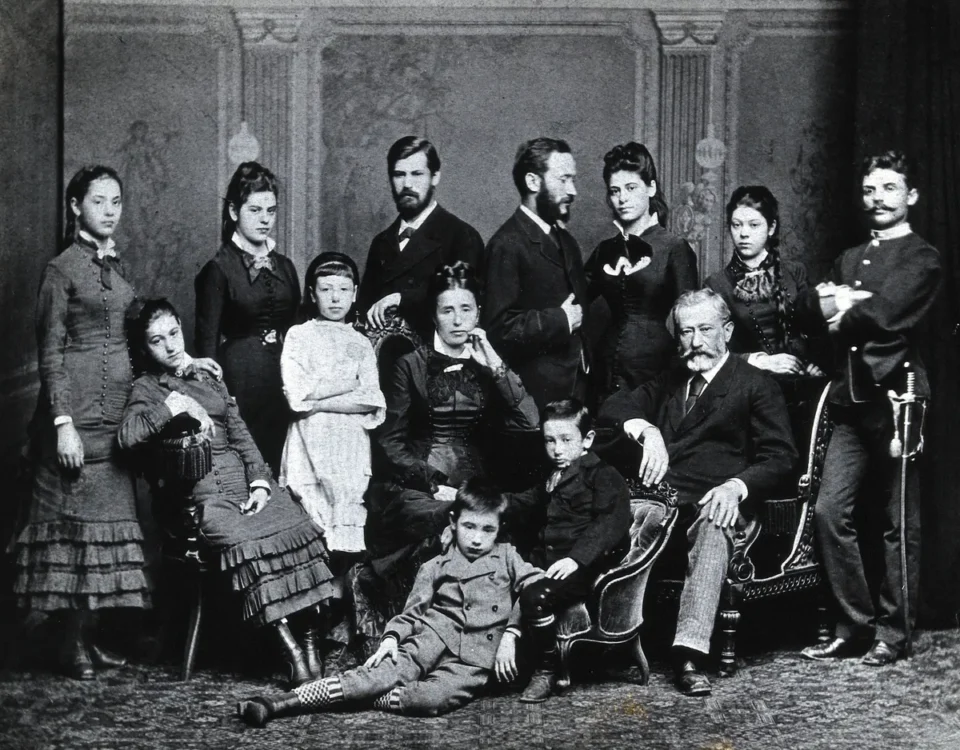
The Ultimate Guide to Acing Anatomy and Beyond in Medical School (2025)
April 11, 2025
Top Anki Decks and Strategies for Medical Students in 2025
April 11, 2025Summary (TL;DR)
Focus on understanding how concepts connect within the human body, as this will help you see the bigger picture and retain information more effectively. Invest in trusted, high-quality resources like Physeo, Anki, UWorld, and First Aid to streamline your learning process. Surround yourself with a supportive network of peers and mentors who can encourage and motivate you during challenging times. Prioritize studying smarter by using techniques like active recall, spaced repetition, and focusing on high-yield topics instead of trying to memorize every detail.
Accept that it’s impossible to know everything, and balance your academic efforts with self-care to maintain your mental and physical health. By combining these strategies, you’ll be better equipped to excel in the basic sciences, perform well on Step 1, and navigate the ups and downs of medical school with confidence.
Medical school is a challenging journey filled with academic rigor, mental exhaustion, and personal growth. Whether you’re navigating the basic sciences or preparing for the USMLE Step 1, success requires a strategic approach, adaptability, and a commitment to self-care. In this comprehensive guide, we’ll combine insights from multiple perspectives to provide actionable tips and strategies for excelling in medical school and conquering the USMLE Step 1. From creating rigorous schedules to using memory palaces and prioritizing mental health, these lessons will help you thrive.
Tip #1: Create a Rigorous Schedule and Stick to It
One of the most critical skills for succeeding in medical school is time management. As Chanpreet Mangat emphasizes, creating a rigorous schedule—and adhering to it—is essential. "I am a serial schedule maker," she writes. "I make schedules for each of my modules that indicate all the lectures, small groups, labs that I have and any corresponding question sets, and external resource videos I want to watch." This helps her see what she needs to accomplish day-to-day, week-to-week, and module-to-module.
Taking this a step further, Mangat suggests scheduling your day hour by hour. While this may sound extreme, blocking out specific times for lectures, study sessions, and breaks can help you stay organized and accountable. "When I first started doing this, I realized that I was spending a lot of time on my phone because I wasn’t getting tasks done in my allotted time frames that were totally doable!" she shares. By visualizing your goals and tracking how you spend your time, you can identify inefficiencies and optimize your workflow.
Michael Christensen echoes this advice, warning against wasting time during pre-clinical years. "You cannot afford to waste time during these years when you have more time," he writes. "Use them to focus on learning this valuable information." Scheduling not only ensures productivity but also allows you to carve out time for self-care, exercise, and hobbies—a crucial aspect of maintaining balance.
Tip #2: Be Adaptable
Medical school is a dynamic environment where no two modules are the same. As Mangat notes, "To be successful in medical school, you HAVE to be adaptable. You have to be willing to switch it up, and do so quickly." For example, studying physiology requires a different approach than anatomy or biochemistry. Being open to trying new study habits and resources will help you tackle diverse topics effectively.
Fatima Alam reinforces this idea, emphasizing that "one size does not fit all" when it comes to studying. "If two people study in the exact same way using the exact same resources, they still would not get the same scores," she explains. Understanding your learning style and adapting accordingly is key. For instance, if Anki flashcards work wonders for one student but not another, there’s no need to force it. Instead, experiment with different tools until you find what works best for you.
Adaptability extends beyond study techniques. Sarrah Fadul highlights the importance of physical comfort during dedicated study periods. "No one tells you this, but TURN UP YOUR SCREEN BRIGHTNESS," she advises. Simple adjustments like optimizing your workspace can prevent headaches and eye strain, allowing you to focus better.

Tip #3: Everything Connects
A fundamental principle of mastering the basic sciences is recognizing how everything connects. Mangat advises students to start making connections between topics early on. "It’s medicine after all, and although you may learn topics in discrete modules, that doesn’t mean the information just leaves your head as you move along," she writes. "Everything connects in the human body, and the earlier you learn that, the further you will get with your studying."
Christensen agrees, urging students to focus on understanding underlying processes rather than rote memorization. "Don’t just rely on reading the information," he cautions. "Dig deeper and try to understand the mechanisms behind the concept." Immersing yourself in complicated topics, testing yourself, and discussing material with peers can solidify your understanding.
Fadul provides an example of integration in action: "Physeo videos are gold, let me tell you why... What I particularly like about them is the last video of each chapter which teaches you integrated approaches to physiology questions that can come up in Step 1." Leveraging resources that emphasize connections can bridge gaps in your knowledge and prepare you for both coursework and exams.
Tip #4: Invest in the Right Resources
The right resources can save you time, effort, and stress. Mangat recommends investing in technology like a good computer or iPad to streamline your studies. "Invest now in things that will save you time in the future," she advises. Similarly, Christensen advocates for limiting the number of resources you use. "Less resources equals more," he writes. "You don’t need 10 resources to do well in your classes or on the exam. 3-4 at most will suffice."
Among the recommended resources are First Aid, Physeo, Anki, and UWorld. Fadul praises Physeo’s physiology videos for their clarity and integration-focused content. Meanwhile, Christensen highlights the value of UWorld as the "gold standard" for question banks. He stresses the importance of thoroughly reviewing explanations to understand why answers are correct or incorrect.
Additionally, Fadul suggests using PDF versions of textbooks like First Aid for quick referencing. "Flipping through First Aid to read that one line from a question you missed sounds like a waste of time," she notes. "Instead, search through your soft copy of First Aid with CTRL+F for quick referencing."
Tip #5: Find Your Tribe
Surrounding yourself with supportive peers is vital for surviving medical school. Mangat emphasizes the importance of finding good study partners who lift you up and challenge you academically. "Having a tribe you can rely on makes studying a lot less lonely and having good study partners helps you pick up on information you might have missed out on!" she writes.
Alam adds that having a support system is crucial for overcoming challenges. "Keep friends and mentors close so that you can ask for help when you feel lost or it seems like things are not improving," she advises. Trusted individuals can offer guidance, encouragement, and perspective during difficult times.
Building relationships isn’t just about academics—it’s also about creating lasting bonds. "Medical school is a long journey, but you will also come out of it with special relationships that can only be forged there," Mangat reflects. These connections can sustain you emotionally and professionally throughout your career.

Tip #6: Study Smarter, Not Harder
Quality over quantity is a mantra shared by many successful medical students. Mangat encourages prioritizing high-yield concepts before delving into details. "Focus on bigger concepts before honing down in the finer detail," she advises. For example, understanding a drug’s broad mechanism of action before memorizing its specific effects can enhance retention and application.
Active recall is another powerful tool. Mangat suggests using a whiteboard to test yourself on what you’ve learned. "Using a whiteboard is a great technique for this!" she writes. "Test yourself on what you know before you go back to reviewing it, and you’ll get a lot more out of your study time!"
Christensen and Alam both advocate for spaced repetition and memory palaces as effective memorization strategies. "Studies have shown that spaced repetition improves retention and improves scores," Christensen notes, recommending Anki for daily review. Meanwhile, Alam highlights the utility of memory palaces for rote memorization-heavy subjects like microbiology and pharmacology. "For these topics, it is futile to read or listen to someone recite fact after fact, hoping it will stick," she writes. "Instead, use memory palaces."
Tip #7: Accept That You Can’t Know It All
Perfectionism can hinder progress in medical school. Mangat reminds readers that "there will never be a point where you feel like you finally know everything." Accepting this reality is liberating. "Know when to take a break and when it’s healthy for you to say no," she advises.
Similarly, Alam encourages students to prioritize their mental health over obsessively pursuing every detail. "It is important to remember that, although this exam is a major factor for residency applications, it is not the only factor," she writes. "At the end of the day, it is still an exam. This is not the be-all and end-all!"
Balancing ambition with self-compassion is essential. Taking breaks, pursuing hobbies, and connecting with loved ones can recharge your mind and body, enabling you to perform at your best.
Conclusion
Navigating medical school and preparing for the USMLE Step 1 is no small feat, but with the right strategies, mindset, and support system, you can succeed. By creating a rigorous schedule, staying adaptable, leveraging high-quality resources, and prioritizing mental health, you can master the basic sciences and excel on the boards. Remember, progress is rarely linear, and it’s okay to ask for help along the way. Celebrate your achievements, no matter how small, and pay it forward by sharing your wisdom with others.
As Fatima Alam concludes, "These are things I wish someone told me when I was studying, and I hope that now for someone else, the journey is a little easier." With determination, resilience, and the insights shared here, you’re equipped to conquer the challenges ahead.

Topic FAQs
Take Your Medical Education to the Next Level with Physeo
Whether you're preparing for Step 1, Step 2, or striving to become a more confident and compassionate physician, Physeo is here to support your journey. Our resources are designed to help you master complex concepts, stay motivated, and achieve your goals.
📚 Unlock Premium Study Tools
Dive into our comprehensive video lessons, image mnemonics, and proven study plans tailored for success. Check out Our Plans to explore subscription options and find the perfect plan for your needs.
💡 Stay Inspired with Our Blog
Looking for tips on excelling in medical school, overcoming burnout, or balancing life as a student or professional? Check out our Blog. It’s your go-to resource for actionable advice and stories from fellow medical students and professionals.
📺 Boost Your Learning with Our YouTube Channel
Prefer learning through videos? Subscribe to our YouTube channel for free tutorials, step-by-step explanations, and expert insights to help you ace your exams and thrive in your medical career.
📱 Connect with Us on Social Media
Stay updated, inspired, and connected with Physeo across our social media platforms:
- Instagram: Follow us on Instagram for daily motivation, study tips, and behind-the-scenes content.
- Facebook: Join our community Here for updates, discussions, and support.
- LinkedIn: Connect with us professionally at LinkedIn for industry insights, career advice, and networking opportunities.
🚀 Ready to Excel?
Invest in yourself and your future patients by joining the Physeo community today. Let’s work together to create a generation of healthcare providers who lead with knowledge and compassion.
Start Your Journey NowAuthor
Chanpreet Mangat, Michael Christensen, Fatima Alam and Sarrah Fadul
Content Creators
Latest articles
Our newsletter
- Work-Life Balance
- USMLE Prep
- Study Tools
- Stress Management
- Spaced Repetition
- Residency Applications
- Physeo
- Personal Growth
- Pathology Education
- OB/GYN Specialty
- Nutrition
- Neuroscience
- Mental Health
- Medical School Tips
- Healthcare Innovation
- Global Health
- Fitness & Wellness
- Faith & Medicine
- Doctor-Patient Relationships
- Creativity in Science
- Career Planning
- Anatomy Mastery












